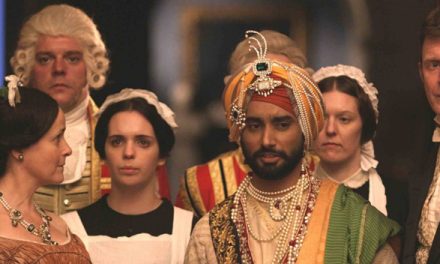On this seventieth anniversary of the Partition of Punjab, the States involved are falling over themselves to exploit the occasion to appease simple-minds, generate revenue, and most importantly to advance their respective narratives. In Pakistan and India, the birth of their nations seven decades ago is being celebrated as you can expect with great pomp and nationalist fervour, further cementing their flags, identities and homogeneity into the minds of their citizens (and the rest of the World). Neither say much about the violent labour that brought them into the World; both say nothing of their criminal conception arising from the dismantling of the Sikh Kingdom in collusion with the British Empire. The British establishment contrastingly has invested resources and comandeered community proxies to evoke the memories of violence, pain and tragedy, but conveniently does so without paying heed to their role in orchestrating and overseeing it all.
Through all of this the Sikh community sits idly by as we have done for a lifetime now, nodding our heads and clucking our tongues, occasionally shedding a tear, lamenting our loss, and talking endlessly about the importance of remembering, without actually dissecting what the heck happened. From 1469, we fought hard over centuries to establish a new State; it was not perfect, but in my opinion a vast improvement on what was there or anywhere else for that matter. When the great monarch Maharaja Ranjit Singh breathed his last midway through the nineteenth century, the fall of Sikh rule became a foregone conclusion. The rise and fall of Empires is inevitable, but what the Sikh people have faced since is complete annihilation and usurpation of our sovereign state of mind – and it is this that I wish to challenge for we have become willing participants in the unfolding drama.
I have written previously of the Sikh stand rejecting the Indian Constitution, despite having stumbled into siding with the ‘Indian’ project over the ‘Pakistani’ one. Why is this account not regaled in every Gurdwara and Sikh household this week? Why is it not common knowledge amongst every Sikh that Partition is more than violent upheaval; that it is the climax of a century of manoeuvring by the Schools of thought that culminated in Jinnah and Nehru, where we Sikhs were found wanting? We are still bereft of political nous and fail to embrace the complexities of not only the present geopolitical situation, but our own way of life and its intricacies, and instead of reversing this happening, we sit stagnant at best (regressing at worst). Change cannot come from any one particular instance (contrary to what troll-readers might think, I don’t envisage people reading an article on naujawani and achieving emancipation), but it will come with small steps.
The Sikh State (despite being without capital city or defined territories at this time) needs to reimagine Partition and define it entirely for ourselves. And there is one clear place to start:
“ਹੇ ਅਕਾਲ ਪੁਰਖ ਆਪਣੇ ਪੰਥ ਦੇ ਸਦਾ ਸਹਾਈ ਦਾਤਾਰ ਜੀਓ! ਸ੍ਰੀ ਨਨਕਾਣਾ ਸਾਹਿਬ ਤੇ ਹੋਰ ਗੁਰਦੁਆਰਿਆਂ ਗੁਰਧਾਮਾਂ ਦੇ, ਜਿਹਨਾਂ ਤੋਂ ਪੰਥ ਨੂੰ ਵਿਛੋੜਿਆ ਗਿਆ ਹੈ, ਖੁਲ੍ਹੇ ਦਰਸ਼ਨ ਦੀਦਾਰ ਤੇ ਸੇਵਾ ਸੰਭਾਲ ਦਾ ਦਾਨ ਖ਼ਾਲਸਾ ਜੀ ਨੂੰ ਬਖਸ਼ੋ।”
In the penultimate pauri of the Ardas Sikhs reflect on their statehood that once was and, in a mandate made umpteen times every day throughout the entire Sikh World, state that free-flowing service and control of Nankana Sahib and other places will come again with the grace of the Guru. Places of historical importance to Sikhs were divided across the two newly established countries of India and Pakistan, leaving those in the latter largely outside of the Sikh community’s control. Some of these places were home to major Gurdware, whilst others were the base for institutions, but all remained historically significant. Hence this pauri was inserted into the Ardas that is and has been recited in living memory.
The Ardas is the most powerful device any Sikh has – it is our voice to the World at large propagating our desires and intent. The wording of this pauri is neither to reincorporate these out-of-reach spaces into an Indian Punjab, nor to simply experience them in the manner of a pilgrimage; it is to inspire, educate and inculcate a mindset of sovereignty, of freedom, of Khalsa-centric thought. Recite the Ardas tonight, tomorrow and each day for the rest of your lives, individually, as a family, as Sangat, and do so with the passion that the Indian, Pakistani, and British national anthems will be recited this week. Don’t remember through the State remembrance of what took place seventy years ago – reimagine the Partition as Sikhs.





